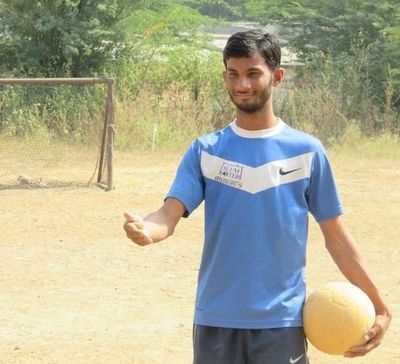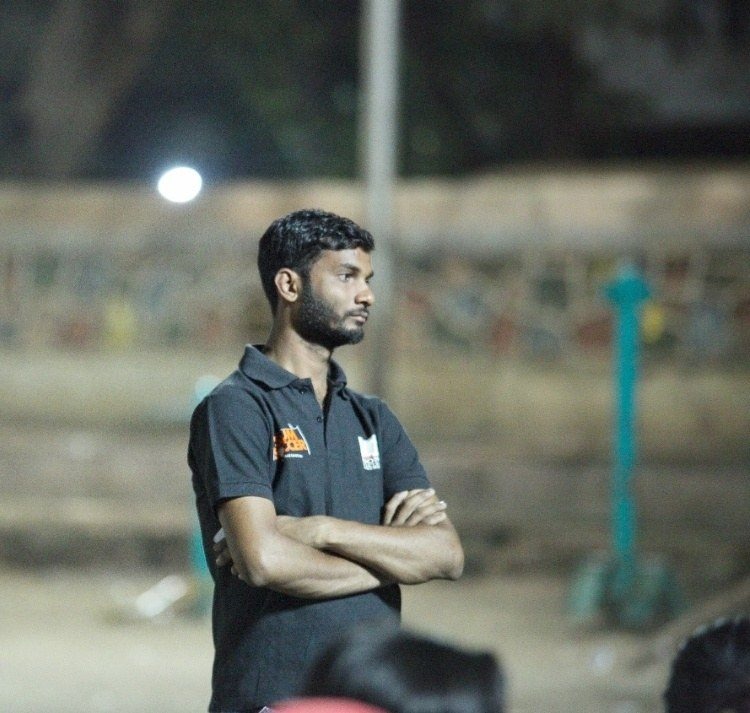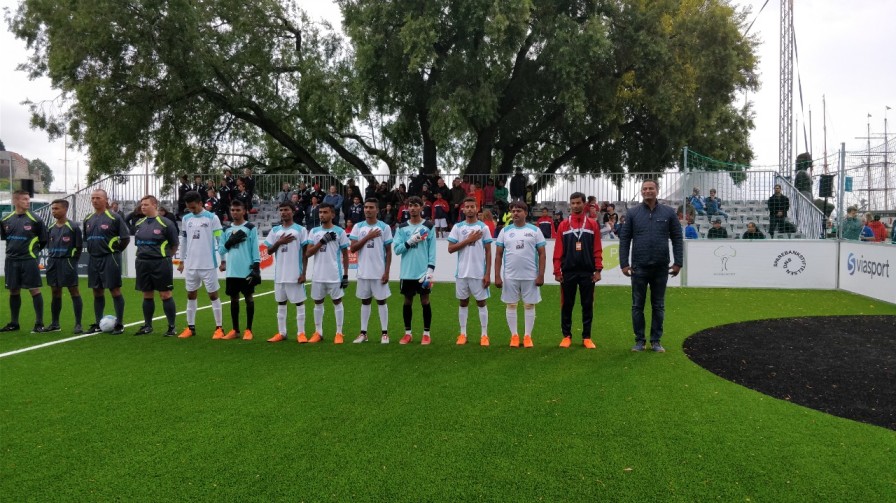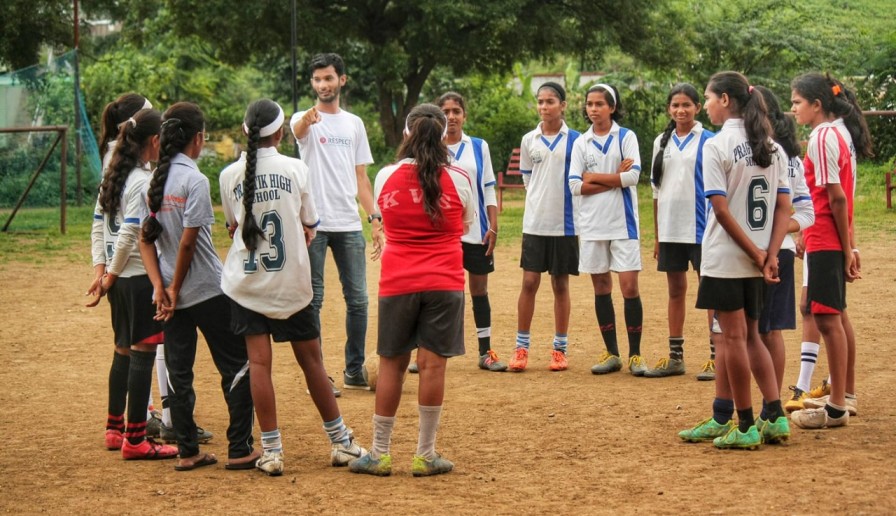Seeing the blood flow out of his mother’s head, a 17-year-old Pankaj Mahajan cried incessantly. Because of his inebriation, he sat there helpless instead of calling an ambulance.
“Had it not been for my neighbours, my mother would have passed away in front of my eyes, all because I had been drinking since morning. My father had hit her with a rod on her head during an argument and there was nothing I did to protect her. That incident changed my life,” Pankaj, an international football coach, tells The Better India.
A resident of Maharashtra’s Godhani village, he grew addicted to alcohol and tobacco in Class 4 and an absence of parental guidance only made it worse.
With an alcoholic father and a disabled mother in the house, Pankaj dropped out of school to earn a living. He did not see a future for himself until his mother was severely hurt in 2011.
‘Nobody said addiction was wrong.’

Pankaj’s father ran a tiny shop selling daily items including tobacco. Having seen his father and other elders in the village chew tobacco with pride, a young Pankaj thought it would be ‘cool’ to follow in their footsteps.
While manning the shop one day, Pankaj tried beedi (mini-cigar filled with tobacco flake) when no one was around. He hid the beedi and the next day took a drag again. Before he realised, he had finished an entire packet.
“The sad part was that my father caught me smoking once and turned a blind eye. He did not stop me and neither did my mother. This gave me the impression that beedi was not a bad thing. Soon alcohol came into the picture,” says Pankaj.
There came a point when parents in the village warned their children to stay away from Pankaj. But he remained oblivious to these developments. One day he found himself beating an autorickshaw driver.
If his social life was affected, his health and financial issues were not far behind.
“My teeth turned yellow and my appetite reduced drastically. I could barely run and felt tired all the time,” he adds.
He had to discontinue his studies after Class 10 to earn money. Whatever little money his father earned was spent on alcohol and gambling. Frustrated by their lack of money, his father often beat his mother and him.
To escape the beatings, Pankaj sought more alcohol and tobacco. It became a vicious cycle until Slum Soccer NGO came into the picture. Started by Akhilesh Paul, the NGO works with homeless children to uplift them through football.
The NGO learnt about Pankaj’s situation from the villagers and decided to intervene.
He was offered free football training and a small stipend and was enrolled back in school.
De-addiction Through Football

He did not have the urge to smoke a beedi or binge drink every time he was on the field. This was probably the first time, he felt productive and accomplished. Receiving guidance in the sport and lifestyle habits was a first too.
But Pankaj failed to see this and instead believed the NGO was trying to separate him from the things that he found solace in. He dropped out of the programme.
The 2011 incident pushed him to join again.
“Along with the brilliant tactics of the game, I was learning about gender equality, health, kindness, sympathy, education and more. It was certainly a crash course on life. I did not miss a single day of practice as I was seeing a change in myself,” says Pankaj.
The commitment and focus bore fruit and soon Pankaj was playing at the state and national level. In 2013, he flew to Poland to play his first international match for the Homeless World Cup. He was the captain of the team.

He was covered in several regional newspapers and for the first time, his father was proud of him. The same villagers who once ostracised him were now singing his praises.
“I felt responsible and my actions had meaning. People, especially children, looked up to me. I wanted to help children like me going through a crisis at home. I enrolled myself in various programmes of the NGO for leadership and coaching opportunities. Alongside, I also completed my graduation in Physical Education,” says Pankaj.
Things seemed to improve at home as well. His father took efforts to mend the relationship they shared and even admitted his lifestyle habits were unhealthy. But he couldn’t stay away from alcohol and in 2014, he died by suicide.
The Other Side Of The Coin

In 2017, Pankaj coached the Indian team for Homeless World Cup in Norway and thereafter he coached the girl’s team for the Glasgow tournament.
As a coach, Pankaj has also spread social messages among the girls under ‘Shakti Girls’ project across 25 villages. He uses football exercises and techniques to educate the girls on menstrual hygiene, education, gender equality, etc, something that he was learning just a couple of years ago.
“During warm-up exercises, we teach topics and while dribbling, the girls have to share the lessons they learn. They also learn life skill sets like problem-solving, decision making, transparent communication and teamwork,” adds Pankaj.
He is also learning sign language so that he can train hearing-impaired coaches who can further teach deaf children.
Today, Pankaj is the project manager with Slum Soccer and is also responsible for handling their social media pages.
“There was a time when my English was very poor but thanks to this job, I am learning a lot,” he says.
Pankaj has come a long way from battling an addiction to now making a difference in other children’s lives. He is currently pursuing his Bachelor of Arts from Indira Gandhi National Open University and he will for the first time attempt to write the paper in English.
“But this time I won’t go blank or feel helpless. I have prepared, worked hard and focussed on my goals,” he adds.
All images are sourced from Pankaj.
(Edited by Yoshita Rao)
No comments:
Post a Comment